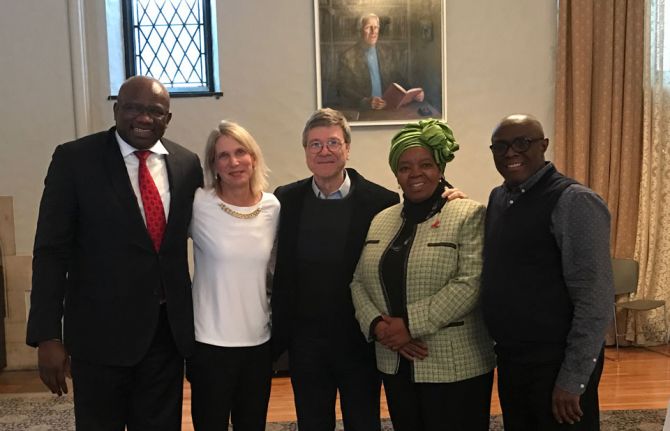

Update
Plan to increase community health workers endorsed
13 February 2017
13 February 2017 13 February 2017Economic experts and representatives of national AIDS programmes, health ministries and health professional organizations endorsed the creation of a global coalition of community health workers in UNAIDS-convened consultations in New York, United States of America, on 9 and 10 February.
Community health workers bring cost-effective services to communities and increase service access for marginalized people, who often struggle to access essential health services. More than 6 million community health workers are already in place across the world. However, many are unpaid and are typically not fully integrated into health systems.
The participants called for an urgent initiative to recruit, train and deploy at least 2 million community health workers over the next two years to drive progress towards the 90–90–90 targets—whereby 90% of people living with HIV know their HIV status, 90% of people who know their HIV-positive status are accessing treatment and 90% of people on treatment have suppressed viral loads—and to lay the foundation for sustainable health for all.
The consultations generated strong support for UNAIDS to establish a new international coalition of community health workers by mid-2017. This coalition will help to galvanize the creation of national associations of community health workers, support their harmonization and formalization, advocate for actions that support them and provide a unifying platform.
As a next step, it was agreed that UNAIDS will seek input from country-level community health workers on the vision, mission and structure of the coalition. UNAIDS will lead a global effort to mobilize resources for an emergency fund to support national initiatives for community health workers and to incorporate them as formalized, integral members of the health system.
Funding from Luxembourg supported the consultations. The Earth Institute of Columbia University and the International Association of Providers of AIDS Care were co-hosts.
Quotes
“Community health workers are a key element of getting practical about achieving 90–90–90. Right now, though, no one owns the community health worker agenda and no one is paying for it.”
“We will end AIDS if we meet the 90–90–90 targets, but there will be an epidemic rebound if we don’t. Real action at the community level will be key to reaching 90–90–90. By recruiting at least 2 million new community health workers, the AIDS response can generate dividends beyond the AIDS epidemic.”
“Community health workers can help us achieve the 90–90–90 targets. Moving forward, we need to improve the technical facility of community health workers on HIV, much as we successfully did earlier in Ethiopia with respect to childhood illnesses. Government commitment is key. If national commitment is in place, we can reach our goals for community health workers.”
“Community health-care workers are working in more than 95% of Brazil’s 5500 municipalities. In my view, all of the improvements we have seen in health over the last two decades are linked to the practice of community health workers. Community health workers understand the local culture. They go into people’s houses to educate them on health and to deliver health services.”
“When HIV exploded in our countries, it was the community that provided care and treatment. Too often, though, community health workers are sometimes treated like an app for a smartphone. Governments sometimes think they can turn community health workers on and off like an app, but community health workers need to be integrated as an ongoing part of the health system.”



